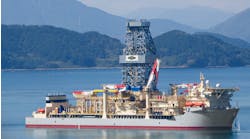The major oil companies and larger independents typically invest in material fields that fit with their asset portfolios and contribute to their corporate targets for growth in production, earnings and ROACE (return on average capital employed). Such companies are able to finance acquisitions and ongoing investment through the public markets and the strength of their corporate balance sheets.
However, an increasing number of small private oil and gas companies are being formed. The shares are owned by the management team and by a venture capitalist or private equity fund, with the balance of the finance being provided by a bank. These companies bring creativity, focus, and energy to a project and a willingness to outsource tasks normally retained in-house.
The small private companies have a different perspective from that of the majors and larger independents. They are often interested in a single asset, or perhaps a small number of assets, that will produce a return on the investment made by the management team and the other equity owners, after servicing the bank debt. This enables the start-up companies to invest in assets that are no longer of interest to other E&P players.
The industry as a whole is facing uncertainty in relation to decommissioning. There are questions surrounding scope, and in particular whether the companies will be required to reinstate to a clean seabed or whether the footings of the installations can be left in place. There are few historic actual costs on which to base estimates. It is not clear whether several fields can be decommissioned simultaneously to take advantage of economies of scale.
The primary liability for decommissioning rests with the owners of the field at the time of decommissioning. Each owner is liable for the total decommissioning cost, irrespective of its percentage ownership of the field. As a result, some field owners have agreed to provide security to each other to cover the risk of default by one of them. The security is normally in the form of a bank letter of credit or a guarantee from an AA rated parent company. Security is given when the decommissioning cost estimate exceeds the value of the remaining reserves plus a safety margin. The safety margin can be as high as 50%. The amount of the security to be provided increases each year as the remaining reserves decline.
For a company with a strong corporate balance sheet, the cost of providing a bank letter of credit is less than the cost of borrowing. For those with AA rated parents, there is no cost at all in providing a guarantee. However, for a small private company, decommissioning securities can create significant financing costs. As the bank will already have advanced the maximum loan it is prepared to lend (which is based on project cash flows on a downside reserves case), the small company often has to use equity funds to cash collateralize the bank letter of credit. This can make it difficult for small companies to pay a price attractive to a seller and maintain equity returns at a level that would be attractive for venture capital or private equity.
In addition, the government can hold any previous owner liable for the decommissioning costs if the current owners all default. As result, some sellers insist on decommissioning securities being given to them by the purchaser, even when that is not required by the continuing owners. Again, this creates an impediment to small companies.
One way forward would be for the UK government to accept the risk that an individual owner could not meet its decommissioning liabilities, rather than that risk remaining with the other owners and all previous owners. Decommissioning securities would then be granted in favor of the government rather than other past or present owners.
There are three reasons why the government could justify a lower level of security than that currently required, at least in relation to fields that are natural targets for the smaller companies.
First, the government could spread its risk across the whole of the North Sea and therefore would not need the same safety margin between the decommissioning cost estimate and the value of reserves. Second, the capital invested in the fields by the new owners would generate incremental corporation tax receipts. And third, accessing new reserves would defer the end of economic field life and therefore the point at which companies claim tax relief on decommissioning costs.
Such an intervention by the government would facilitate the sale of fields to new owners that have the capital to finance new wells. And that would be good news for the hard pressed drilling sector, as well as for E&P companies.
Bruce McLeod
Paull & Williamsons
Bruce McLeod is an Energy partner at the UK firm Paull & Williamsons. Before joining Paull & Williamsons, he spent eight years at BP in Aberdeen, latterly as the commercial operations manager for the Northern Business Unit. In that role, he led a team responsible for negotiations, economics, and hydrocarbon accounting for BP's producing fields east and west of Shetland and related pipelines.
This page reflects viewpoints on the political, economic, cultural, technological, and environmental issues that shape the future of the petroleum industry. Offshore Magazine invites you to share your thoughts. Email your Beyond the Horizon manuscript to William Furlow at [email protected].


